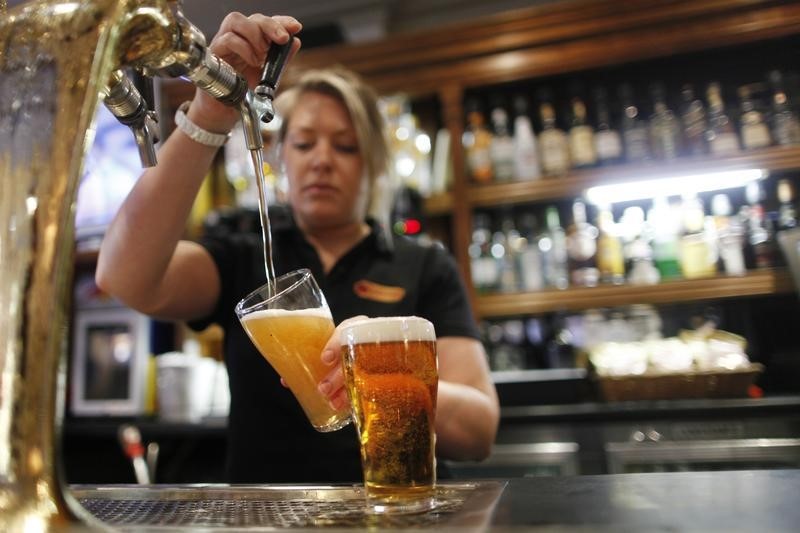(Bloomberg) -- Analysts see the potential for further pub closures after Hong Kong’s CK Asset Holdings Ltd. agreed to buy Greene King Plc in a deal that valued the U.K. company at about 2.7 billion pounds ($3.3 billion).
Greene King shares surged 51% on Monday to the highest level since the Brexit referendum in June 2016, after CK Asset’s bid of 850 pence a share in cash. Peers Marston’s Plc, JD Wetherspoon Plc and Mitchells & Butlers Plc also rose.
The deal follows private equity firm TDR Capital’s agreement to buy U.K. pub-chain operator EI Group Plc for about $1.6 billion in July.
“Nearly all the different industries within the listed Leisure space have seen a pick-up in private equity interest this year,” Morgan Stanley (NYSE:MS) analyst Jamie Rollo wrote in a note.
Here’s a round-up of market views:
Morgan Stanley, Jamie Rollo
(Cut to equal-weight from overweight, PT raised to 850p from 690p)
- The 850p per share bid implies a valuation of an estimated 9.2x enterprise value to Ebitda for calendar year 2020
- The bid also represents a 0.5x premium to historical managed pub transactions over the last 20 years
- Proposed deal shouldn’t raise many competition issues
- Offer values Greene King at 13.3x P/E 2019e and 9.26x EV/Ebitda 2019e, which is in line with the P/E multiples for the acquisition of peer EI Group
- Offer looks fair, should be completed in December 2019
- The offer price “seems like a hefty price for a sector which has been under pressure” because of higher wages, higher business rates and a more fragile consumer environment
- The announcement has helped the pub sector as a whole because it may signal pub closures ahead, which could help the pubs that stay open
- “Price competition is key” and CK Asset’s investment might make sense if it can help lower prices
- The announced deal is “a bottle of champagne for shareholders,” but it may mean more pub closures
- Greene King owns the freehold or long leasehold on 81% of its properties, and CK Asset’s premium suggests the the Hong Kong firm “sees significant value in the property portfolio”
